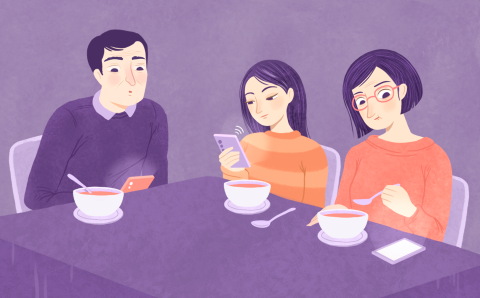I'm a person who uses a power chair. Some people think I have an intellectual disability. I don't, and I have never understood why people think that. What very few people recognize is that I do have depression as a secondary condition. Mental illness is so quiet.
This summer I experienced a mental health crisis. I take medication to keep my depression at bay, and I had realized months earlier that the meds I was on were no longer controlling it. If someone would have listened sooner, I never would have gone through what I did.
Even though I was “in the system,” (in the U.S.) I encountered three roadblocks to getting my depression under control. First, the state’s community mental health agency in my county would not change my medicine without a sleep study even though I had been telling them for months that I needed a medication change. I followed through, but the clinic canceled my first two appointments and ultimately scheduled a study for months later. When I became desperate for a new prescription, I went to a walk-in mental health clinic, where I filled out paperwork and waited for two hours only for them to tell me they didn’t take my insurance. My insurance card had been the first thing they saw. The next night I went to a hospital emergency room, where I talked to a psych nurse who agreed I needed help. But the doctors there won’t change prescriptions because they can't follow up. What ultimately happened was my general practitioner reading the ER doctor’s notes. My doctor knew it wasn’t like me to be so desperate, so she finally started me on a new medication. It has helped significantly.
All this happened even though I was already “in the system.” Imagine somebody not in the system not only trying to admit they need help but then having that much trouble finding it.
Diagnoses of mental illnesses are on the rise. According to Mental Health America, here in Michigan alone about 1.7 million adults live with a mental illness, but 26.6 percent of those individuals are not getting the care they need.
Mental health issues are not wrong or shameful, yet the world has stigmatized them. About all we can do is more advocacy to get the word out that they are just like any other health crisis. This May is Mental Health Awareness Month. Let’s take this opportunity to educate people about the signs and symptoms and about the barriers to care.
People shouldn't have to wait for two hours in a clinic only to be turned away because the clinic doesn't accept their insurance. People facing mental health crises should be able to find immediate help. Too many doors were slammed in my face. How many people with depression or other mental illnesses will keep fighting for help?
As I left the mental health clinic, I read its sign: “Christian Hospital.” I chuckled to myself. I wondered if they'd treat Jesus the same way.
About the Author
CRC Regional Disability Advocate Elizabeth Schultz belongs to the Church of Benjamin’s Hope in Holland, Mich. She is a Distinguished Toastmaster and teaches group home aides how to treat people with disabilities. Find her online at tinyurl.com/5f65web6.








